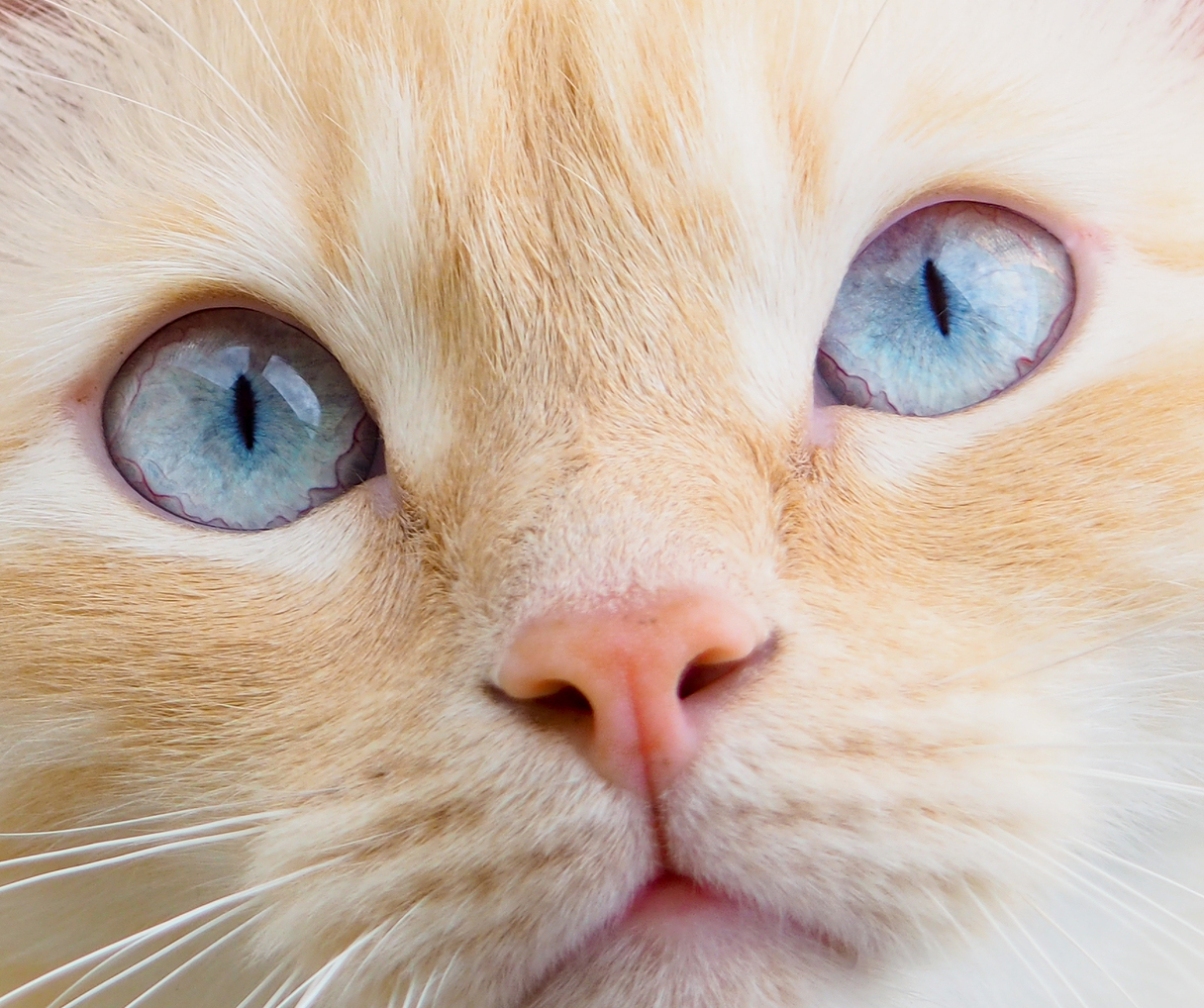Conjunctivitis or pink eyes is a problem that shouldn’t be taken lightly. You won’t believe it, but we have seen people term it as just another ocular anomaly! No, it isn’t that, guys! Humans get it, but do you know what is even more worrying? Your cat is getting it! The matter gets a lot more complicated with possible risks of transmission. So, we thought that owing to the seriousness of the matter; we would dedicate a space to this topic solely. So, in today’s discussion, we are going to talk about pink eye in detail. We discuss its causes, symptoms, transmission, and prevention. But for all of that to make sense, we need your utmost attention. Ready? Let’s go!
Symptoms of pink eye
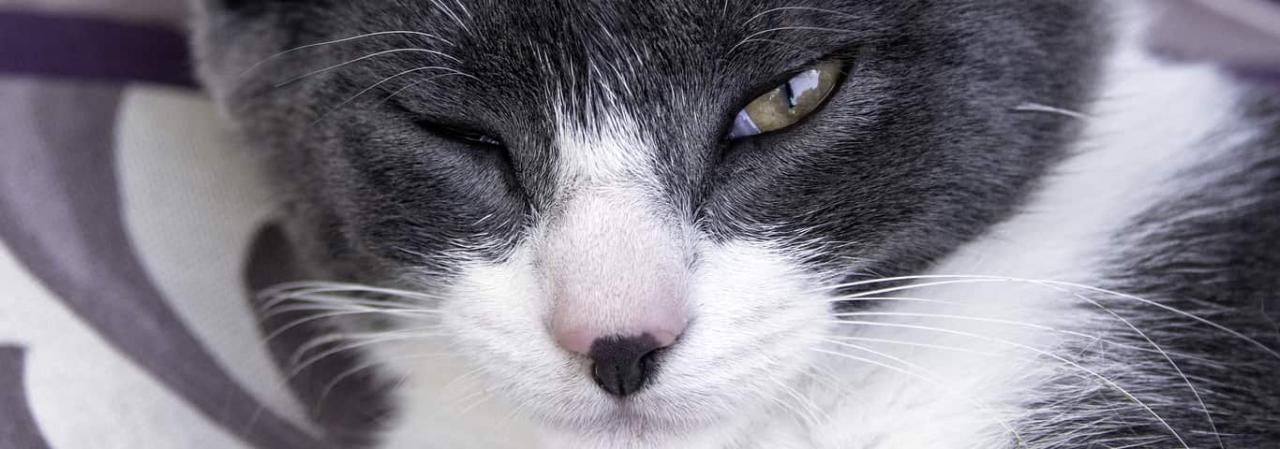
What are the major symptoms of pink eyes? How do you know for sure that it is indeed conjunctivitis and not some other eye anomaly? The most obvious thing to notice is, of course, the redness around your cat’s eyes. Then, you might want to look for some fluid that might have accumulated in your cat’s eyes as a result of this condition. Fluid discharge is a common condition in cats suffering from pink eyes. As a result of these symptoms, your cat might be seen blinking a little more than normal as well. Collectively, all these symptoms are indicative of a pink eye for sure!
What causes pink eye?
At this early point in the discussion, you know most of the symptoms of feline ocular pinkness. However, what you don’t know still is what causes this condition in the first place? Well, mostly, the culprit is a herpes virus. The strain of the virus is feline, and it can cause the characteristic inflammation associated with a pink eye. Apart from the viral agents, there are bacterial agents at work as well. This is what has been dubbed as the virulent form of conjunctivitis. The non-infectious agents responsible for pink eye include allergens and irritants. For example, there might be a shampoo that causes this condition in your cat.
How to treat pink eyes?
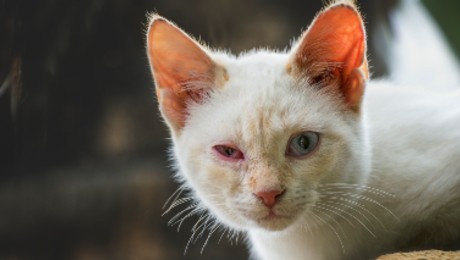
No beating about the bush; let us talk about some solutions. How are you going to tackle the feline pink eye condition? If the conjunctivitis is infectious, then there isn’t much you can do apart from using the medicine, which is an antibiotic or an antiviral agent by nature. Not playing the doctor is key here, something that we will talk about again shortly. Some home remedies are popular for treating the non-infectious version of pink eye. For example, many recommend that applying apple cider vinegar to the neck region of your pet will alleviate the condition. We also like the idea of a saline solution, but it can be a bit irritating for your eye. Be prepared for some kicks!
Can humans get pink eyes?
No, you can relax! Humans cannot catch the pink eye from their cats. The reason why we say this so confidently is because this condition is mostly because of infectious agents like viruses and bacteria. Luckily, the viral and bacterial strains which cause this condition in cats aren’t the same as human strains. Hence, humans are saved by the feline nature of these agents.
On the other hand, it can be an absolute mess if you have more than one cat at home. The disease is very contagious as far as cats are concerned, and there is no reason why it won’t spread from one cat to the other if you don’t take the necessary steps to prevent that from happening. Not only cats, your canine friend, if you have one, is also susceptible to pink eyes. You will need to be extra vigilant, or otherwise, this thing can take the form of an endemic.
How to prevent pink eye?
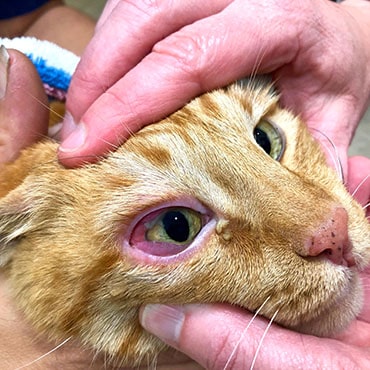
We have talked about the treatment of conjunctivitis earlier. Now, it is time to use that cliché once more; prevention is better than cure. How can you prevent the thing from happening in the first place? The first thing to do would be to establish the trace. What was the source? What caused that redness in your cat’s eyes? Note down all the possible reasons and eliminate them one by one. We have discussed the causes already; you can consult those again to prepare a comprehensive list. As far as containing the spread is concerned, well, you will need to put the patients into quarantine first! Also, wash all the toys, cat trays, and other kitty items that your cats use frequently. These artifacts are coated with contagion, make sure you clean and disinfect them properly!
The wisest thing to do?
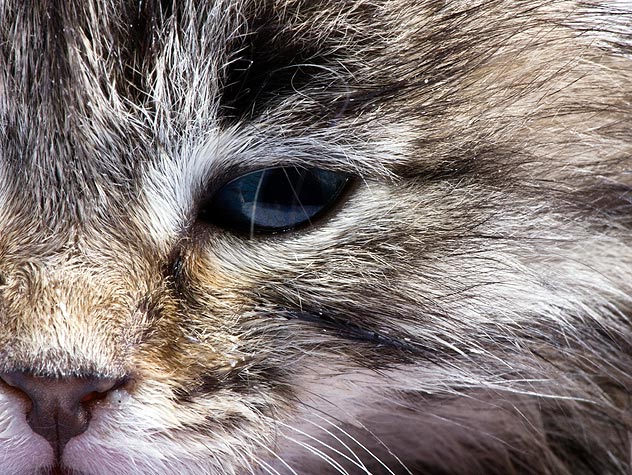
It would help if you did everything we have told you to do in these lines, and yet, there is one thing that outweighs every word that we have uttered in this discussion—consulting the vet! A professional can diagnose the symptoms of conjunctivitis much quicker and in a professional manner. Also, the reason why we are stressing about consulting the vet is that some of you love to play the vet! Yes, we have seen countless stories where people messed up their pet’s life forever by giving pills, which did more damage than good. Ointments are also used excessively and without any prescription notes by a licensed vet. Result? Permanent blindness!
Conclusion
Well, that will be all for now. We wish we could add a bit more to this discussion, but the limitations of time and space force us to write the concluding remarks right here. Nevertheless, we are confident that you learned a lot of new things today. Feline ocular problems are a tough nut to crack. From diagnosis to treatment and them containing the disease in case it is viral, it is a lot of work. However, if you don’t panic, this is a situation that can be controlled; all that you need is a calm head. And of course, as we mentioned earlier, the wisest thing to do would be to consult the vet.
